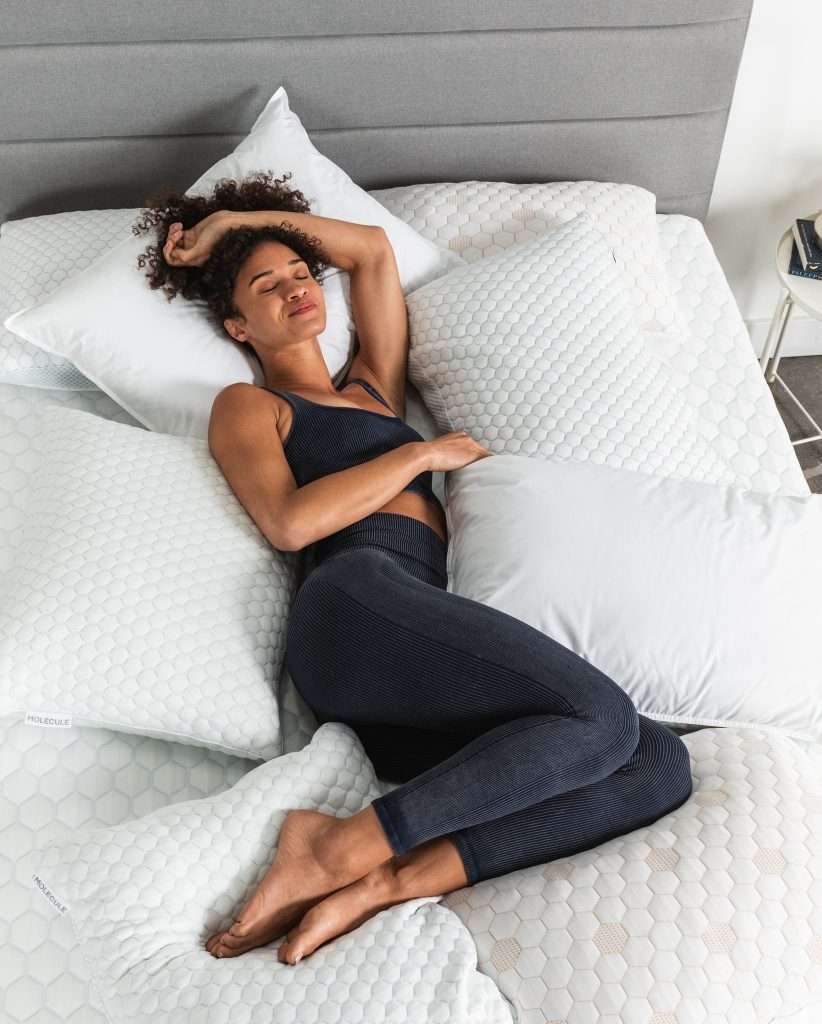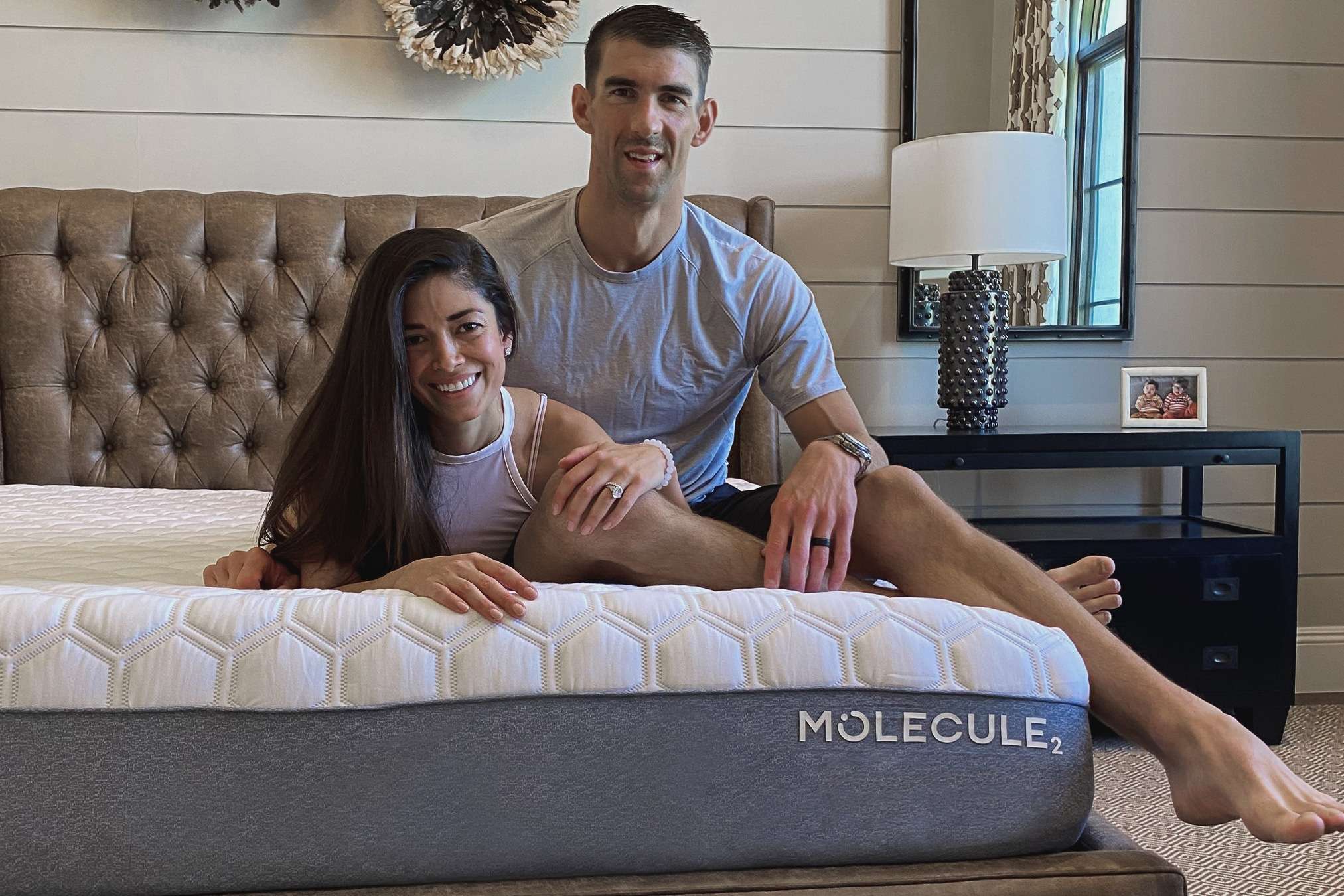Americans don’t sleep enough. It’s a health crisis that affects millions, with significant consequences. Could something as simple as changing mattresses and bedding help? It worked for Olympian Michael Phelps.
According to the Centers for Disease Control and Prevention, at least 30 percent of Americans routinely fail to get enough sleep. The recommended seven hours is a sliding scale—some people need more, some less. But studies show that sleeping fewer than seven hours per night on average increases a host of health risks including developing chronic conditions such as obesity, diabetes, high blood pressure, heart disease, stroke, and mental distress.
“There are many reasons why people aren’t sleeping well,” Dr. Allison Brager, neuroscientist, sleep specialist for Molecule, and author of Meathead: Unraveling the Athletic Brain, tells Ethos via email. She says issues run the gamut, ranging from stress, anxiety, inappropriate room temperature, drinking excess alcohol, and a diagnosed sleep disorder, among other reasons.
Many of us spend too much time staring at our devices, too, especially before bedtime, which can suppress melatonin, making it more difficult to fall asleep and stay asleep.
“As a nation we are not getting enough sleep,” Wayne Giles, M.D., director of CDC’s Division of Population Health, said. “Lifestyle changes such as going to bed at the same time each night; rising at the same time each morning; and turning off or removing televisions, computers, mobile devices from the bedroom, can help people get the healthy sleep they need.”
But what we’re sleeping on may play a bigger role in our sleep health than we think.
Sleep health
“A mattress is incredibly important for a good night’s sleep because if your mattress is not supporting your head, neck, and body in the way it should be, it will result in pain and stiffness that affect not only the quality of your sleep, but equally important, your day-to-day function and how you feel,” Brager says.
“I mean, who wants to walk around in pain, right? A good mattress should keep your spine in a neutral position and help minimize any aches and pains,” she says.

Brager says Molecule’s mattresses help with muscle recovery because the unique engineering is designed to maximize support, comfort, and heat dissipation to deliver the best recovery-focused sleep. It’s made Molecule a hit with athletes, especially the brand’s ambassadors: Olympic swimmer Michael Phelps, Olympic soccer star Alex Morgan, and NFL quarterback Russell Wilson.
“Sleep plays an important role in both physical and mental health — I spent years perfecting my training regimen and getting good sleep is a huge component,” Phelps, who holds the world record for most Olympic medals, said last year. “I’ve felt a huge difference in my body’s ability to fully rest and recover since sleeping on Molecule.”
Brager is also an athlete herself, having competed in track and CrossFit at high levels. She says athletes like Phelps love Molecule because they tax their bodies so hard in training and competition “and are always looking for the best recovery possible.”
“If you can recover quickly and optimally, you can feel good and perform at your best,” Brager says. “Everyone these days is an athlete, especially what we’ve been through. Whether it’s a full-time mom or a traveling executive, we all strive to feel well and perform at our best.”
Molecule mattresses
Brager says Molecule‘s mattresses are different because they’ve been designed by sleep doctors and scientists with a goal to maximize comfort and support. This, she says, delivers “the most restorative sleep possible.” Brager says the products are also specifically designed to maximize airflow and facilitate cooling.
“The research and development at Molecule, together with engineers carefully work through the material selection, production processes, and develop designs for sleep products that most effectively transfer heat away from the body—a critical factor for getting the most restorative sleep possible.”

All of Molecule’s mattresses are made with a technology called Air Engineered, which uses micro-climate regulating material designed with geometric zoned reflex layers for targeted support. “I personally love the Molecule Hybrid,” Brager says, “because of how it combines the cooling comfort of foam and the adaptive response of coils with a five-zone support layer made to relieve critical pressure points exactly where you need it.”
Molecule offers mattresses at a range of prices. The Molecule 1 offers self-adjusting support, pressure relief, and spine alignment. The Molecule 2 Airtec, like all Molecule mattresses, has temperature regulation, making it a smart choice for hot sleepers. It’s made with the Microban AEGIS Microbe Shield technology, which inhibits the growth of microbes.
The sustainable mattresses are made in the U.S. and have earned the CertiPUR-US certification for the foam, which is made without ozone depleters, formaldehyde, mercury, lead, and heavy metals. The foam is also low-VOC, something Brager says is important. “It’s healthiest to sleep on eco-friendly products.”
And, Brager says sustainable mattresses are better for the environment, too. “This is important because we want to be as socially responsible and as kind to our planet as possible.”


